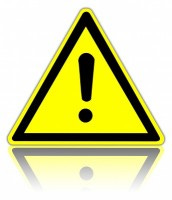FDA warns: drinking on Chantix may have unexpected effects

The U.S. Food and Drug Administration announced today that varenicline (Chantix) can alter people's reaction when drinking alcohol, potentially causing a lowered tolerance, blackouts, and aggressive behavior.
Oh, and watch out for seizures too (these were rare).
The warnings come as advance notice of a label change, based on FDA's review of cases reported over time by Pfizer and through the FDA Adverse Event Reporting System (FAERS).
Chantix was approved by FDA for smoking cessation in 2006, and already has a black box warning against neuropsychiatric side effects, including hostility, agitation and suicidal thoughts. Pfizer has argued its postmarketing data shows varenicline's psychiatric safety and is appealing the black box, but FDA is awaiting the outcome of an ongoing safety study before rendering a decision.
That study's results are not expected until late 2015; FDA has stated the black box warning (plus the new labeling changes, presumably) will remain in place at least until those results are reported.
FDA's announcement instructs physicians:
[W]eigh the potential risk of seizures against the potential benefits before prescribing Chantix in patients with a history of seizures or other factors that can lower the seizure threshold. Advise patients to immediately stop taking Chantix if they develop agitation, hostility, aggressive behavior, depressed mood, or changes in behavior or thinking that are not typical for them, or if they develop suicidal ideation or behavior.
Until patients know how Chantix affects their ability to tolerate alcohol, they should decrease the amount of alcohol they drink.
Patients who have a seizure while taking Chantix should stop the medicine and seek medical attention immediately. Report side effects involving varenicline to the FDA MedWatch program (1-800-332-1088)
Anecdotal reports of a bad booze/Chantix interaction have bubbled through the blogosphere since 2009. Studies suggest that whatever its flaws, though, Chantix is the most effective pharmacologic smoking cessation aid available. The drug generated $647 million for Pfizer in 2014.


